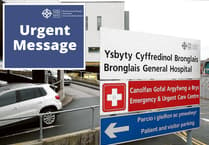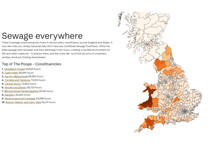THE MAN in the online video holding the body of his dead child takes only five words to tell the story of the criminal disaster that is Gaza: “The world is just watching.”
Exactly so. Of no crime in recent history can it be said that its details have been relayed - via mobile phones and internet - to the outside world in such horrifying and seemingly endlessly repeated detail.
For all that, never before perhaps has such an onslaught of information and evidence about a humanitarian calamity been met with comparable inaction, silence even, among countries with the power and influence to halt the atrocities being flung at Palestinians.
According to local health authorities, Israel’s attacks have already killed more than 52,000 people in Gaza, most of them non-combatants, many of them children. The repeated objects of these attacks will surely have shaken to the core any country subscribing to even minimal standards relating to the conduct of war.
Where else do you see hospitals packed with patients and the people caring for them frequently targeted, where else are refugee camps, schools and bakeries bombed beyond recognition?
Aid has now been blocked by Israel for two months; Gaza faces famine.
And so to Tom Fletcher, British diplomat and the United Nations’ Under-Secretary-General for Humanitarian Affairs, and Emergency Relief Coordinator for Gaza, briefing the security council in New York last week.
He told the world’s representatives: “I ask you to reflect – for a moment – on what action we will tell future generations we each took to stop the 21st-century atrocity to which we bear daily witness in Gaza.
“It is a question we will hear, sometimes incredulous, sometimes furious – but always there – for the rest of our lives.
“We will surely all claim to have been against it? Maybe we will say we issued a statement? Or that we trusted that private pressure might work, despite so much evidence to the contrary?
“Or pretend that we thought a more brutal military offensive had more chance of bringing the hostages home than the negotiations which brought so many hostages home?
“Maybe some will recall that in a transactional world we had other priorities.
“Or maybe we will use those empty words: “We did all we could.”
Just hours before he spoke, the European Gaza Hospital in Khan Younis was, he said, “bombed, again, with even more civilian casualties reported.”
Fletcher told the security council: “I can tell you from having visited what’s left of Gaza’s medical system that death on this scale has a sound and a smell that does not leave you. As one hospital worker described it, ‘children scream as we peel burnt fabric from their skin…’
“And yet we hear that ‘we did all we could.’ ”
Earlier, an Israeli government minister, Bezalel Smotrich, was reported as saying that Gaza would be “entirely destroyed”, and that “totalling despairing” Palestinians would realise “there is no hope”, a statement described by former EU foreign affairs chief Josep Borrell as “so clearly (in) outline a plan that fits the legal definition of genocide”.
The Welsh government has been slow to react meaningfully or decisively over Gaza.
Late last year, it failed to acknowledge, or explain, why it was not supporting a petition at the international court of justice accusing Israel of genocide, signed by Ireland, Spain, Bolivia, Colombia, Egypt, Mexico, Turkey, Chile and Libya.
The then Irish prime minister, Simon Harris, said: “Ireland is pro-peace, pro-human rights and pro-international law.”
As a relatively small country, it was also not afraid to stand up and say so and, specifically, to take decisive action to demonstrate the fact. Wales - or at least its government- was silent.
This column argued that the Welsh government should not hesitate to align itself with the international court action, recognising that this was an issue so horrifying that vast-scale blood-letting and flattening of homes, hospitals, schools and public infrastructure in Gaza had for many people in Wales become too appalling to take on board, even remotely.
But politicians of all parties and none kept their gags on. In the face of carnage, Wales’s elected representatives looked the other way. As opposed to many members of the public, who have been involved in frequent vigorous protest.
When this column messaged 16 randomly selected members of the Senedd, from all parties, seeking their opinions on Gaza, two replied.
Among the silent majority were first minister Eluned Morgan and Plaid Cymru leader Rhun ap Iorwerth.
Things have since improved - very slightly.
In February, Plaid berated the Welsh government for refusing to criticise Donald Trump’s proposed US takeover of Gaza and the removal of Palestinians to neighbouring countries, “in clear contravention of international law.”
Using the kind of lame language icily referred to by Tom Fletcher, government minister Jane Hutt said merely that Cardiff had no powers over foreign affairs. Oh, such futile words.
Since then, the government has given a total of £200,000 to an appeal by the Disaster Emergency Committee appeal. It has called for the aid blockade to be lifted, and said humanitarian aid should never be used as a political tool. It has joined the UK government in calling on Israel to respect international law and allow the unhindered flow of aid into Gaza.
Sorry, but this is all pretty tame stuff. An Israeli government minister says Gaza will be “entirely destroyed”, with Palestinians forced into a single “humanitarian area” or to flee abroad. How can such a plan be seen as other than genocidal, a belief apparently shared by Egypt and Jordan, who are saying that if they accept refugees they would be complicit in war crimes.
Wales, proclaiming an independence and boldness of thought commensurate with its enhanced status based on a newly expanded Senedd, needs to go further than the UK and be done with remarks which fall well short of condemnation of a project of annihilation.





Comments
This article has no comments yet. Be the first to leave a comment.